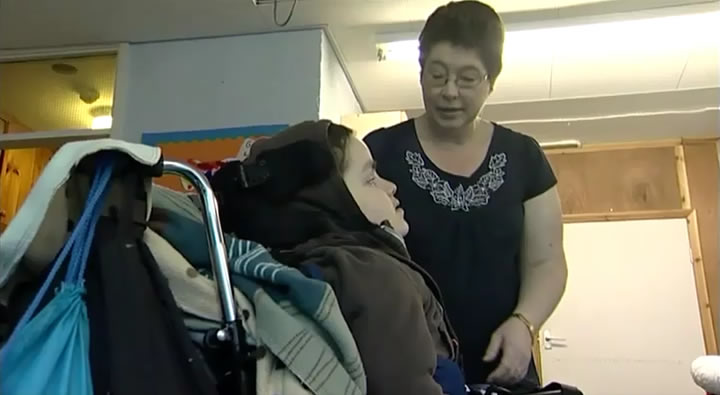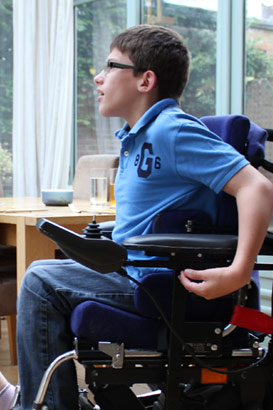
Parents have identified four areas of concern in relation to quality of life:
- Medical concerns, e.g. worsening of condition, medical tests and procedures
- Concerns for the child, e.g. communication (mother and child), school experiences and social problems
- Concerns for the family, e.g. changes in lifestyle and financial strain, and
- Concerns for self, e.g. personal feelings and fears (particularly about the future), additional responsibilities and time demands.
List derived from Noojin and Wallander (1996).
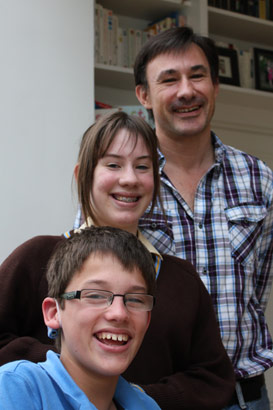
Not all families are the same and not all parents are under the same burden of stress when bringing up a child with complex disabilities. It is as important to recognise the individual nature of each family's quality of life as it is to recognise that quality of life will be different for individual children.
Aspects that may make a difference to families include:
- The composition of the family and the support or other resources or other that the family can draw upon, and
- The nature of the child's disability
- Cultural issues.

The composition of families and the support or other resources that the family can draw upon are likely to have an effect on quality of life for both the child's and the family. Parents who feel isolated and unsupported may experience problems with depression.
Matthew has complex medical needs and is profoundly disabled. Listen to Caroline, Matthew's mum, talking about the importance of the support that her family receives.
Families adapt to disability in very different ways. The quality of a family's life might be affected by a particular type of disability.
For example, there is evidence that:
- Families who have children with Downs Syndrome cope better than those of children with other disabilities
- A child with a hearing loss may not be seen as an issue for a families where parents also have a hearing loss, and
- Children with complex needs and behavioural problems can cause particularly high levels of stress for their families.
This is a summary of text taken from Baker et al (2002).
Individual families will have a particular view on the quality of their lives and what can be done to improve them.
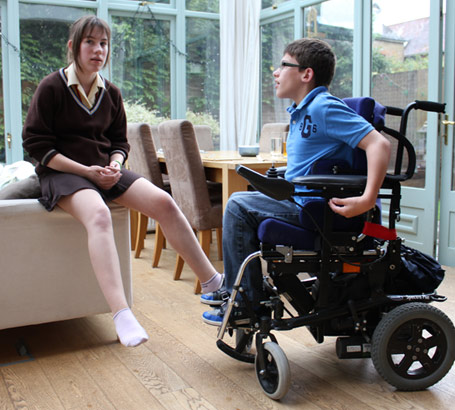
For some families of pupils with learning difficulties, there may be a cultural component. (See, for example, Hatton, 1998).
Listen to this audio clip which highlights the impact of children with complex disabilities on family relationships. Here, Emma's mother, Ruth, talks about the relationship between Emma and her sister.

Beresford, B. (1995) Expert Opinions; a national survey of parents caring for a severely disabled child. York:
Joseph Rowntree Foundation.
Baker, B., Blacjer, J., Crnic, K and Edelbrook C. (2002) Behaviour problems and parenting stress in families of three year
old children with and without developmental delays. American Journal on Mental Retardation 107, 433-44.
Contact a Family (2003) No time for us, www.cafamily.org.uk
Hatton, C. (1998) Whose Quality of Life is it anyway? Some problems with the emerging quality of life consensus, Mental
retardation, 36, 104-115.
Noojin, A. and Wallander, J. (1996) Development and Evaluation of a Measure of Concerns Related to Raising a Child with a
Physical Disability. Journal of Pediatric Psychology, 21. 4 483-498.
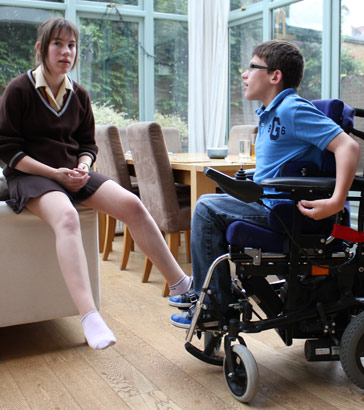
If possible and appropriate, talk to a parent of one of the pupils in your class about the impact on family life of having a disabled child in the family.
Following your discussion, consider if there is anything else that the school might do to improve the quality of life for that family.
